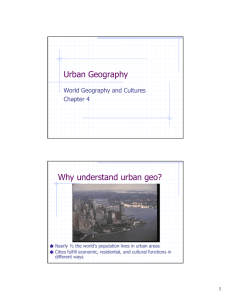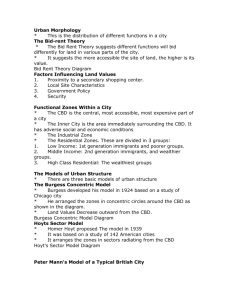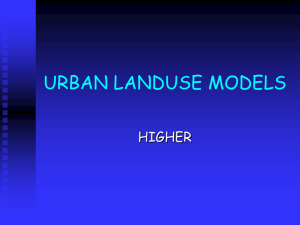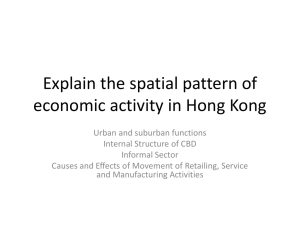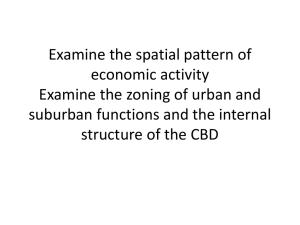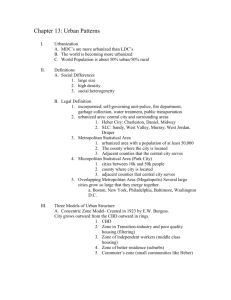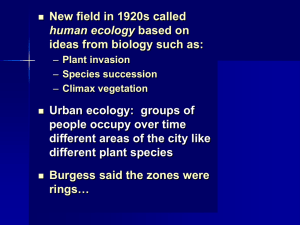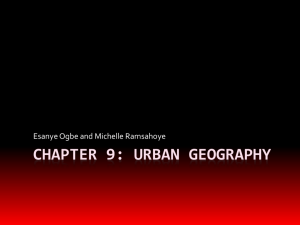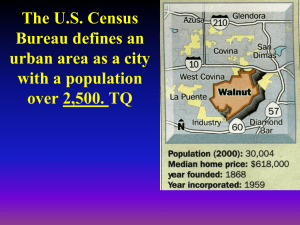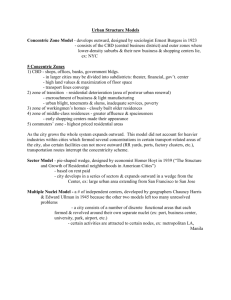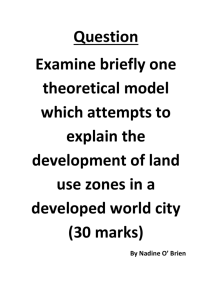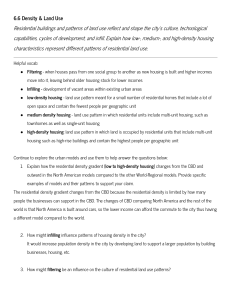ch8
advertisement
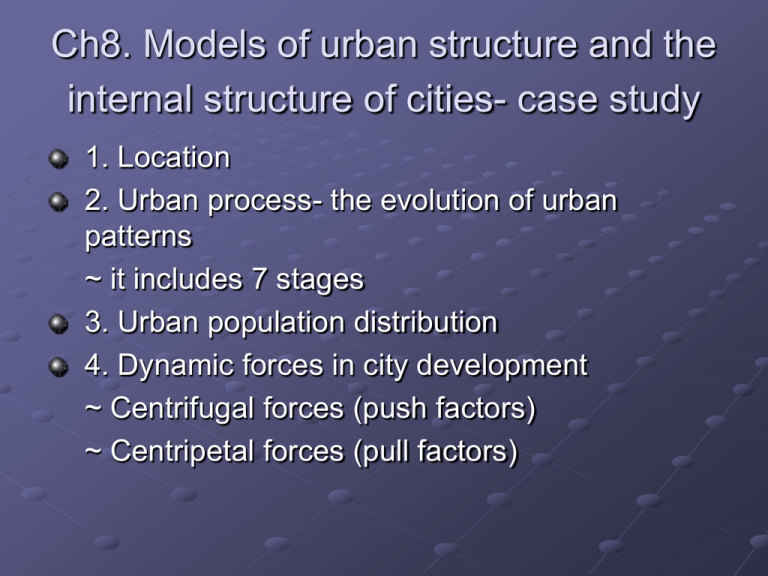
Ch8. Models of urban structure and the internal structure of cities- case study 1. Location 2. Urban process- the evolution of urban patterns ~ it includes 7 stages 3. Urban population distribution 4. Dynamic forces in city development ~ Centrifugal forces (push factors) ~ Centripetal forces (pull factors) Internal Structure of a city – Sydney 1. General description 2. Central Business Districts ~ Introduction ~ characteristic of a CBD ~ Vertical variations in rents and uses ~ Small residential population ~ Traffic congestion ~ few manufacturing industries ~ Dynamic and changing nature 3. Specialized areas in the CBD 1. Service-finance-office zone 2. The administrative area 3. The retailing area 4. Warehousing and manufacturing 5. The entertainment area 6. Residential area 7. Open spaces The zones in transition Basic characteristics ~ this is an urban zone which commonly adjoins the CBD and is undergoing change, changing from a residential function to functions associated with the CBD ~ sectors in the transitional zone ~ Delimiting the zone in Transition The residential areas Inner residential areas Suburban residential areas Reasons for the development of the urban fringe Characteristics of suburban low density housing Manufacturing zone ~ older industrial areas ~ newer industrial districts Shopping centres ~ a hierarchy of retail business districts ~ the selection of a retail site Hypermarkets (regional shopping centres) Characteristics ~ carefully planned ~ out of town ~ provide a wide range of goods and services ~ a single complex serving a population of 250000 or more ~ Large car parks ~ serves only mobile and affluent population who are able to drive and can afford bulk purchases Other urban functions ~ ~ ~ ~ The other urban function,which complete the land use pattern of Sydney are : The port zone has been developed around Botany Bay, whilst parts of the old port near the CBD have been abandoned Transport routes Military land use Recreational reserves Hong Kong 1. Location,spacing and size ~ locational advantages ~ Sizes and spacing of settlements 2. Functions ~ Communication functions ~ Economic functions ~ Other functions 3. Urban population densities High population density Variations in population densities 4. Urban land rents The CBD Away from CBD Local peaks of high land values Industrial districts Public housing estates and squatter areas 5. Urban land use zones in Hong Kong 1. Characteristics 2. Central Business District (CBD) 3. Retailing zones 4. Manufacturing zone 5. Residential areas 6. zones in transition 7. Rural-urban fringe/ suburbs 6. Models of urban structure ~ burgess’s concentric model ~ hoyt’s sector model Application of Burgess,and Hoyt’s model to Hong Kong Harris and Ullman’s multiple nuclei model
